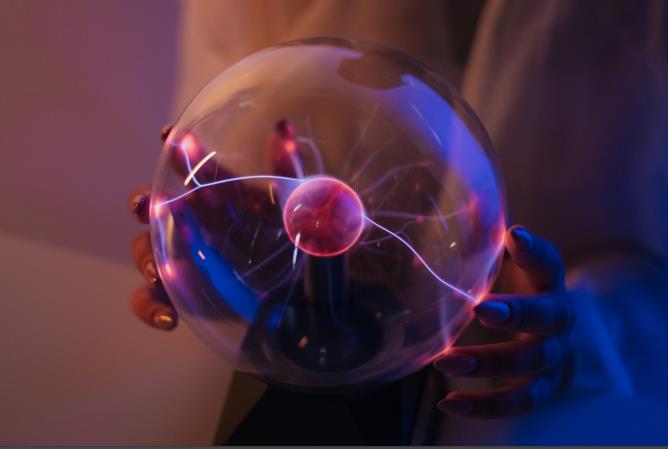The University of Birmingham has announced plans for a new facility to recycle rare earth materials in high performance magnets for electronic devices.The first of its kind, the plant will scale-up a process of extracting and reforming rare earth metals used in magnets developed at the University by the late Professor Rex Harris. The process offers a complete re-manufacturing of materials, taking magnets from end-of-life electric motors and electronic waste to extract valuable components and reform them back into commercial-grade magnetic materials.
These materials, including neodymium, iron, and boron, are becoming increasingly valuable as innovation surges among clean technologies to meet the UK sustainability goals. They have risen further on UK critical materials lists, including the British Geological Survey and UK Critical Minerals Strategy.
The facility hopes to commercialise a process created by the University’s Centre for Strategic Elements and Critical Materials. Hydrogen Processing of Magnet Scrap (HPMS), based on Professor Harris’ hydrogen decrepitation process, uses hydrogen to liberate and break down used magnets into an alloy powder to then be re-manufactured.
During its development, the process was first tested in the laboratory using an old washing machine drum to extract rare earth alloys from products such as hard disk drives, speakers, and electric motors to separate it from other materials in the objects.
Thanks to funding received from the EU Horizon 2020 project SUSMAGPRO, one of the largest magnet projects in Europe, the process has now been expanded to the pilot scale following its initial success.
As it is scaled-up, the materials are now processed by a 1,200-litre pressure vessel, able to capture 100kg of magnets per day. The resulting powder is demagnetised during this process, to allow for it to further be pressed and sintered, from which the reclaimed materials are compacted and heated to form new magnets.
In doing so, the new process uses 88 per cent less energy to reform the new magnets compared to virgin sources, while offering the only indigenous source of sintered rare earth magnets in the UK.
End-of-life electronics will be sourced from a number of places to be used to create reformed metals. As part of a UK Research and Innovation (UKRI) funded project (RARE), Life Cycle Solutions are providing hard disk drive scrap to be remanufactured into magnets for use in a subsidiary motor application for Bentley vehicles. Additionally, European Metal Recycling is to provide pre-sorted speaker assemblies, while The UKRI SCREAM project, funded through Driving the Electric Revolution (DER) is targeting end-of-life automotive motors, partnering with Jaguar Land Rover and GKN.
Further DER will fund the pilot and full-scale facility as part of a wider £33 million project for industrialisation centres. The Industrialisation Centres aim to support the UK in becoming a centre of innovation in power electronics, machines, and drives (PEMD).
With plans to reach completion in 2023, the facility will form part of a wider manufacturing facility at Tyseley Energy Park in Birmingham. As it is commercialised, the HPMS process has been exclusively licenced to HyProMag Ltd, who, as one of the facility’s primary users, will oversee plant operations and establish a supply chain.
Mkango Resources, one of HyProMag’s major shareholders, will support the commercialisation, while developing a pilot scale chemical processing of magnet waste elsewhere in the energy park. This second project aims to complement the short loop magnet recycling being developed by HyProMag.
Professor Allan Walton, Co-Director of the Birmingham Centre for Strategic Elements and Critical Materials at the University of Birmingham, said: “This pilot plant paves the way for the UK to take a leading role in high performance magnet recycling. Alongside the technologies and equipment, we have developed a wealth of industry and research expertise. These partnerships form a solid foundation for this new industry to succeed.
“It is vital to develop processes to ensure a sustainable supply of these materials and reduce dependency on virgin mined metals. As less than five per cent of end-of-life magnets are currently recycled, this is a key process that can begin to address the global shortfall in magnet manufacture.”
Nick Mann, HyProMag’s Operations General Manager, added: “This pilot plant enables us to demonstrate not only the potential of the HPMS process, but how efficient the end-to-end production line can be.
“It will also enable us to refine and streamline the production line ahead of launching our full-scale facility at Tyseley. The plant will produce rare earth alloy powders which can be fed into any part of the rare earth value chain.”
Mkango’s CEO, Will Dawes, concluded: “It is very exciting to see this homegrown and transformational green technology reaching this stage of development – we belie ve that HPMS technology, developed at the University of Birmingham and being commercialised by HyProMag, can unlock the supply chain for rare earth magnet recycling from end-of-life products.”

Source: https://resource.co/article/new-rare-earth-metals-recycling-plant-open-birmingham




